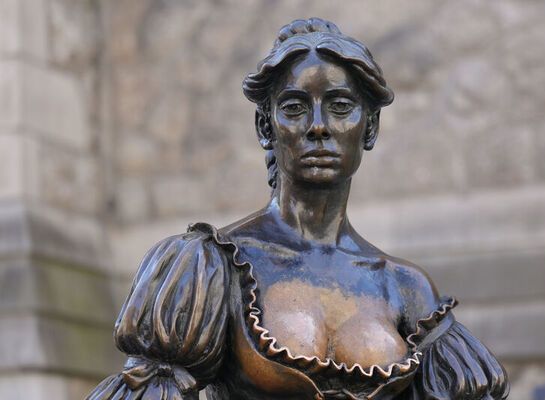By Peter McDermott
[caption id="attachment_21925" align="alignnone" width="600"]
Late on Friday afternoon, Sept. 28, 1956, William Brennan Jr. got a phone call summoning him to meet with President Eisenhower at the White House the following morning.
The New Jersey judge, then 50, would always claim later that he'd had no inkling about the purpose of the meeting. He was "dumbfounded" when Attorney General Herbert Brownell told him over breakfast that the president wanted to nominate him to the Supreme Court.
Weeks earlier, when a vacancy occurred, the Republican president had instructed Brownell to look for someone who had court experience, was youngish and Catholic, "even if he was a conservative Democrat."
Fifty-four years later, Seth Stern, co-author of a major new biography of Brennan, said many people are still invoking him "as the sort of passionate, persuasive liberal they want on the court."
The conservative Catholic Antonin Scalia, who joined Brennan there in 1986, called him the "perhaps the most influential justice of the 20th century." It's not something that Stern and Stephen Wermiel contradict in what the Washington Post reviewer David Garrow has recommended as "perhaps the best judicial biography ever written."
The authors, and commentators generally, tend not to use the qualifying adverb when referring to Brennan as the most influential liberal ever to serve on the high court.
In 1953, Eisenhower had tapped Republican politician Earl Warren to be chief justice, touching off, unwittingly, a decade and half-long revolution in constitutional law. The following year, New York's Archbishop Francis Spellman privately urged Eisenhower to pick a Catholic. But the president's immediate concern in the fall of 1956 was his reelection. The brief flurry of interest around the young Massachusetts Senator John F. Kennedy as a possible vice-presidential candidate had suggested there might be a dividend in selecting a northeastern Catholic.
The members of the president's search team declared themselves happy after reading Brennan's opinions and consulting his local parish priest. Spellman was not, in contrast, when he heard the news. He didn't like the idea of Brennan, just as later he didn't approve of JFK.
Ivy League education
In 1956, Brennan, who had long experience as a corporate labor lawyer, seemed like a safe pair of hands from a Republican perspective, but his background as the son of an immigrant union activist and Newark Democratic politician should raised have some red flags.
"His father took a typical Irish immigrant path to success," Stern said. William J. Brennan Sr. was born on a tenant farm near Frenchpark, Co. Roscommon, in 1872. A laborer and later a stationary fireman in a brewery, he rapidly ascended New Jersey's union and political ranks. Stern argued that his speeches about economic justice were clearly marked by the moral theology propounded by Fr. John Ryan (later known as "the Right Reverend New Deal") in works like "A Living Wage."
Brennan Sr. was, at the time of his death from pneumonia at age 57 in 1930, Newark's commissioner of public safety. His second-born of eight, Bill Jr., came back from Harvard Law School for the funeral, which was attended by thousands.
The justice's parents (his mother, the former Bridget Agnes McDermott, was a native of Castlerea, Co. Roscommon) had directed him towards the Ivy League, initially the University of Pennsylvania, rather than nearby Catholic colleges.
Four years after his appointment to the Supreme Court, another Catholic product of Harvard, JFK, became president and appointed his brother, Robert Kennedy, attorney general. Mike Mansfield, a New York-born Montanan of Irish Catholic heritage, was the majority leader in the Senate, while John William McCormack of Massachusetts ascended to the office of speaker of the House of Representatives in January 1962.
Brennan, though, was a relatively obscure figure, his growing influence largely unknown outside the court.
In his early years there, Felix Frankfurter, who taught him at Harvard, Hugo Black and William O. Douglas were seen as the court's intellectual giants, but in retrospect it's clear Brennan was already shaping its opinions.
In a recent interview, Stern's co-author Wermiel said that Brennan was far ahead of the supposed intellectual heavyweights in understanding issues such as free speech in the modern era.
"I don't think he was a philosopher king who liked to think deep thoughts," Stern said of Brennan. "But he was much smarter than he was given credit for. You underestimated him at your own peril."
Scholars and commentators agree that Justice Brennan is distinguished by the range of issues that he had an impact on.
At the unveiling of a statue in his honor in Newark in June, Harvard Law School's Professor Laurence Tribe, a long-time mentor to President Obama, cited Brennan's "fundamental genius," singling out in particular Baker v. Clark, which led the way to one-person, one-vote; Goldberg v. Kelly, which "stood for the audacious principal that poor people, too, deserve due process of law"; and New York Times v. Sullivan, which freed the media from certain libel constraints when covering the struggle for civil rights in the South.
Constitution's genius
Brennan was enormously skillful at building a majority consensus on a case-by-case basis. His pragmatic and progressive approach, though, was one underwritten by his vision of the Constitution.
He argued that the Constitution "is not a static document whose meaning on every detail is fixed for all time by the life experience of the Framers."
In a similar vein on another occasion, he contended that the "genius of the Constitution rests not in any static meaning it might have had in a world that is dead and gone, but in the adaptability of its great principles to cope with current problems and current needs."
Brennan and his colleagues were influenced - too much, say their critics - by the societal upheavals of the latter half of the 1960s and early '70s, which included traumatic events like the assassinations of Martin Luther King Jr. and Senator Robert Kennedy.
His position, however, on one issue of the age, gender equality, was decidedly traditional. For a long time, he refused to appoint a female law clerk. He changed gradually. "His own daughter [Nancy Brennan, currently executive director of the Rose F. Kennedy Greenway Conservancy in Boston] taught him about a new way of thinking about what should be the professional life of women," Stern said.
"He was a liberal justice but a conservative man," he said. "He helped craft the privacy decisions that led to Roe [v. Wade]. But on a personal level, he explained to Steve, he wasn't comfortable with it and he wouldn't be comfortable with a member of his family having an abortion."
The justice who argued passionately against the death penalty, and who was influenced by Catholic ideas of social justice and human dignity, was compared in protesters' signs to Hitler and Stalin.
"It caused him anguish. It was very difficult for him on a personal level," said Stern, a journalist with the Congressional Quarterly. "When he signed on to Roe, there were calls for his excommunication."
There were even protesters outside his funeral in 1997 saying he shouldn't have been given a Mass.
7 a.m. interviews
But long before Roe v. Wade, the court's decisions on obscenity laws and school prayer offended some Catholics. Newsletters were circulated encouraging people to write to him in protest. At the 1964 Red Mass, an annual event attended by judges, lawyers and members of Congress and the Cabinet, Bishop John J. Russell criticized the school-prayer decision. Afterwards, Brennan's wife Marjorie, who was always the more the more devout Catholic of the two, kissed the bishop's ring and then stood upright, saying: "You're not fit for my husband or me to kiss your ring!"
They started going to church less often, and then not at all. "He was uncomfortable around priests he didn't know," Stern said of Brennan, who was close to Notre Dame President Theodore Hesburgh. "He was afraid of being judged."
Following his first wife's death in 1982, Brennan married his former secretary Mary Fowler and the couple began going to a small church in Virginia where he thought nobody knew him. Nevertheless, the young pastor, Fr. Jack O'Hara, did recognize him and they soon became friends.
In 1986, around the time of the 30th anniversary of his elevation to the court, Brennan began thinking about his legacy. His friend Judge Abner Mikva, a former congressman, introduced him to Wermiel, the Wall Street Journal's Supreme Court correspondent, and the idea for the book took root.
"I would sneak up to Brennan's office at 7 in the morning because he didn't want anyone to know that I was writing a book about him," Wermiel recalled of a process that led to 60 hours of taped interviews.
"Even at 7, he was a ball of fire. He was ready to go," the author told the Echo. "He had already read two newspapers. He was always interested in the events of the day.
"It was a very exciting and interesting experience to be able to ask anything about the court," said Wermiel, who teaches constitutional law at American University Washington School of Law.
He was given access to Brennan's papers and interviewed almost all of the 108 law clerks who'd served with Brennan during his career and family members.
"He was especially warm towards his clerks, whom he treated like long-lost friends from their first day in his chambers," the authors write. "Many clerks remembered their intimate morning coffees with Brennan as the highlight of their clerkships."
Yet the justice maintained a core of privacy and the clerks knew little about his own personal struggles. For instance, his wife, with whom he'd eloped as a student and was devoted to for the more than 50 years of their marriage, was an alcoholic. While he could be open to other family members about his late father and his younger son's problems with drink, he never acknowledged it in the case of his wife. Marjorie Brennan also battled cancer for the last dozen years of her life.
When Justice Brennan died, Wermiel put the book aside. Nine years later, Stern, a fellow lawyer-journalist, was recruited to do more research and interviews. He then wrote the drafts of most of the chapters.
Wermiel dedicated the book to his wife and daughter and to "Justice Brennan, Abner Mikva and Seth Stern, who made this book possible."
Said Wermiel, reflecting on the career of the man with whom he had those early morning meetings a generation ago: "He played a lead role in shaping the rights we have in this country and he defined the role the Supreme Court has in our system."
"Justice Brennan: Liberal Champion" is published by Houghton Mifflin Harcourt ($35).









